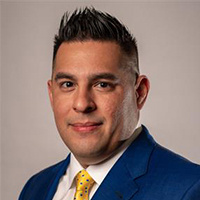Pattison White Collar Crime Lawyer, Texas
Sponsored Law Firm
-
 x
x

Click For More Info:
-
The Law Offices of Richard L. Cooper, P.A.
848 Brickell Avenue Suite 800 Miami, FL 33131» view mapDWI/DUI, Drug Trafficking, Felony Nationally Ranked Top 40 Under 40
With Richard L. Cooper you can expect a trusted confidant who will work diligently to fully understand your case and determine a road map to help you regain control of your life.
800-756-2781
Adam W. Capetillo
✓ VERIFIEDMr. Capetillo was born, raised, and still resides in Fort Bend County, Texas. He graduated from B.F. Terry High School as a fighting Terry Ranger Base... (more)
Marshall Douglas Murphy
Doug Murphy stands as a prominent figure in the legal realm of Houston, Texas, with a focus on Criminal Law and DWI Defense. His career, which began i... (more)
Mark W. Bennett
Since graduating from law school in 1995, he has dedicated his career to criminal defense, never stepping foot in the realm of prosecution. Mark posse... (more)
FREE CONSULTATION
CONTACTDavid R. Bires
FREE CONSULTATION
CONTACTFREE CONSULTATION
CONTACT
 Richard L. Cooper Miami, FL
Richard L. Cooper Miami, FL AboutMiami Attorney at Law
AboutMiami Attorney at Law ServicesCriminal Defense
ServicesCriminal Defense




